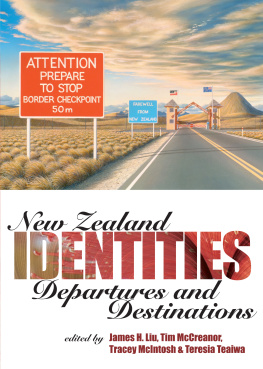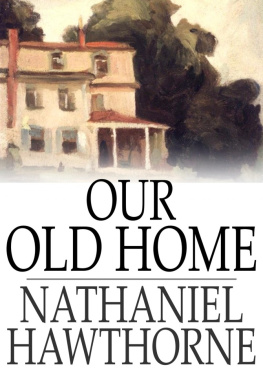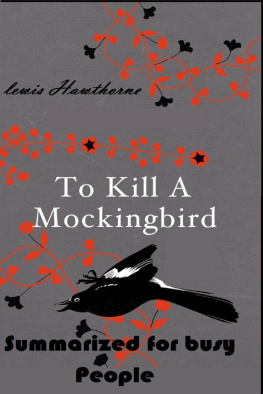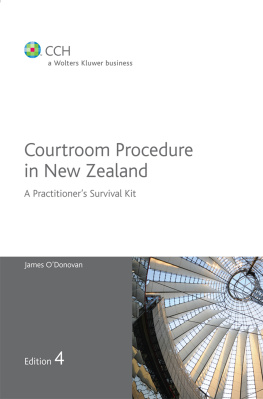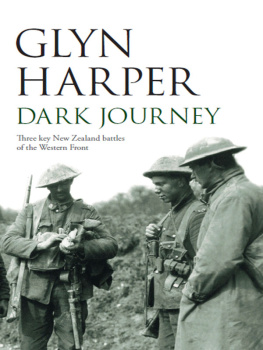| Note: | Images of the original pages are available through Internet Archive. See https://archive.org/details/darkchapterfromn00hawtiala |
Transcriber's Note: The cover image was created from the title page by the transcriber and is placed in the public domain.
A
DARK CHAPTER
FROM
NEW ZEALAND HISTORY.
title page decoration
BY A POVERTY BAY SURVIVOR.
title page decoration
Solitudinem faciunt, pacem appellant.
1869.
PRINTED AND PUBLISHED BY JAMES WOOD, AT HIS PRINTING OFFICE, TENNYSON-STREET, NAPIER, HAWKES BAY.
REPRINT PUBLISHED BY
CAPPER PRESS
CHRISTCHURCH, NEW ZEALAND
1974
Printed offset by The Caxton Press, Christchurch
from the copy in the Canterbury Public Library, Christchurch
INTRODUCTION.
These pages have been chiefly written for such as desire to forward to distant friends a brief connected account of one of those terrible massacres, accompanied by wholesale destruction of property, which bid fair to depopulate and lay waste the North Island of New Zealand.
It is possible that only vague, indefinite reports respecting the calamities which afflict this colony have reached the majority of far-away readers; more especially in Great Britain, impressions are known to prevail which are often opposed to facts. In this little work it is intended to tell a plain, unvarnished tale; to briefly review the causes which led to the perpetration of a great tragedy, and to shew how it might have been prevented. If the sad story contributes, even in a slight degree, to bring about an improvement in the future, the purpose for which it was written will have been accomplished.
BRIEF DESCRIPTION OF POVERTY BAY.
Turanga, or Poverty Bay, lies between the East Cape and the Mahia Peninsula. North and south, the district consists of hills, and a circlet of hills bounds the interior; the hills are partly occupied as sheep runs.
The central portion of the district consists of a fertile plain, which stretches for about 25 miles inland, and averages from six to eight miles in breadth. The plain is traversed by several rivers, navigable for a few miles by small craft, and is diversified by clumps of forest in all directions.
The plain and adjacent valleys are richly clothed with grasses. Fruit groves abound, and wild honey is found in every forest. All descriptions of vegetables and fruits the production of temperate zones thrive to perfection, and require little culture; exotics are reared in gardens with little trouble or expense.
The climate resembles those of Hawkes Bay and Nelson, but is sensibly warmer at all seasons; rain is more equally distributed than in Napier. All parts of the plain are accessible by dray to the coast; vessels of moderate draught can enter the principal rivers, and the roadstead is safe for large shipping in all weathers.
Turanganui, the village capital, is situated at the bottom of a deep bay, from which the district derives its English appellation, on the south bank of the Waimataha river. It contains several stores, a handsome hotel, fine court-house, post-office, etc. On the northern side of the Waimataha, opposite Turanganui, two redoubts are placed, named respectively Wilsons and Hirinis redoubts. The population of Poverty Bay in 1867 consisted of about 500 Maoris and 150 Europeans of all ages. Matewhero was situated about five miles from the sea, in the heart of the district. Many people resided there in houses surrounded with gardens and orchards.
CHAPTER I.
AULD LANG SYNE NATIVE PURSUITS SWIFT DECAY.
Several settlers of thirty, and even forty years standing yet reside in Turanga, or Poverty Bay, as it is named by Europeans; and the description given by those settlers of its condition on their first arrival is interesting and instructive. In those days the Maoris were numerous and industrious; they manufactured a variety of elegant and useful articles; their houses, sometimes handsomely carved, were of a superior description, and their war canoes were magnificent specimens of ingenuity and beauty. Eighty of those canoes, each capable of carrying from 70 to 100 men, have been counted at one time in the Waimataha river. The natives exported large quantities of prepared flax and other produce, which was disposed of to Sydney traders by the earlier settlers.
Hostilities sometimes broke out between different tribes, but the settlers were slightly affected by their occurrence, and, on the whole, the whites found the Maori was a good neighbour. At that time the morality of the natives was of a higher standard than it subsequently became, and the power of the chiefs was in the ascendant.
At a later date the influence of the chiefs declined; another species of domination arose, under which the Maoris (probably the most acute people in the world where their temporal interests are concerned) learned to prefer their rights before their duties. From this period the natives rapidly degenerated: old customs were forsaken; industry declined; and immorality prevailed where before it was almost unknown. All these causes combined, sadly deteriorated the race. By the end of 1863, the Turanga natives were a remnant of what they had been. But if they had declined, the natives still far outnumbered the whites, and had become domineering to an extent unknown before. It is true they have learned to read and write, but it is questionable if their knowledge was beneficial to themselves or their neighbours. Of their religion it is sufficient to say that whilst minutely conversant with the forms of Christianity they knew nothing of its spirit. They were even then suspicious and distrustful of Europeans, and had become what they have since (with a few honorable exceptions) shewn themselves to bea discontented and dangerous people.
CHAPTER II.
WELD MINISTRY VOLKNERS MURDER WELD APPLIES TO MLEAN HUNGAHUNGATOROA MR. WELD RESIGNS FALSE PRETENCES WAERENGA-AHIKA TE KOOTI WAIROA WAIKARE-MOANA OMARANUI REMARKS PEACE DEPORTATION.
In November, 1864, the Weld Ministry assumed office. At this time the war, being waged for Imperial objects, continued with varying success. It was at first viewed with alarm by the natives of Poverty Bay; at a later date they were imbued with the belief that their countrymen were victorious.
At the latter end of 1864, the Hauhau superstition had reached Poverty Bay. On the 1st of March, 1865, the Rev. Mr. Volkner was murdered at Opotiki, 100 miles from Turanga. On the 15th of the same month, the murderers came to Taureka, in Poverty Bay, carrying with them a European head. They were led by Kereopa, who had swallowed Volkners eyes. The object of the party was to win over Hirini te Kani, the principal chief of Turanga, to their side. By the end of March, most of the Poverty Bay natives had become Hauhaus, and the Bishop of Waiapu was obliged to fly the district; a sad commentary upon their presumed conversion to Christianity.
About this time, Mr. MLean, then suffering from severe illness, was urgently requested by Mr. Weld to undertake the pacification of the East Coast; no light task. The Hauhaus were already in arms at Waiapu, and avowed their intention to exterminate loyal subjects of both races. The Hauhaus were daily gaining adherents. Assistance would not or could not be obtained from the officer commanding the Imperial troops; and, but for the unexpected stand made by Mokena, a chief of the Ngatiporou tribe, the East Coast settlements must have fallen; as it was, they were in great peril. Mokena, after defeating the enemy on several occasions, was compelled to act on the defensive, and barely held his pa, against overwhelming numbers. One pa of his, in which he had placed his women and children, had fallen, and a young chief of high rank, nephew to Mokena, had been literally cut to pieces. This occurred in June, 1865. On the 1st July, Lieut. Biggs, with a few volunteers, were ordered by Mr. MLean to proceed to Mokenas assistance, who was thus enabled to resume the offensive. His relief by Biggs was the commencement of that long train of brilliant successes which brought the war on the East Coast to a glorious conclusiona war which would have proved final if its fruits had not been frittered away by a Government without principle, a Government that has sacrificed every vestige of self-respect, and is guided principally by an unflinching resolve to retain office at whatever cost to the colony.





